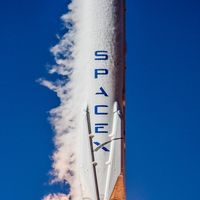X Marks the Spot No More: The End of an Era for Twitter's San Francisco HQ
August 7, 2024, 3:43 am

Location: United States, District of Columbia, Washington
Employees: 5001-10000
Founded date: 2002
Total raised: $7.53B

Location: United States, Texas, Austin
Employees: 10001+
Founded date: 2003
Total raised: $3.86B

Location: United States, California, Livermore
Employees: 1001-5000
Founded date: 2011
The winds of change are blowing through Silicon Valley. X, the social media platform formerly known as Twitter, is packing its bags and leaving its iconic San Francisco headquarters. This move marks the end of an era. For nearly two decades, the heart of Twitter beat in the city by the bay. Now, it seems that heart is ready to skip town.
Elon Musk, the controversial figure at the helm of X, has been shaking things up since he took over in 2022. His leadership style is akin to a whirlwind, leaving many wondering what will be left in its wake. The latest news, confirmed by CEO Linda Yaccarino, reveals that employees will soon vacate the office on Market Street. The official announcement has yet to reach the public, but the internal memo has set the rumor mill ablaze.
San Francisco has been the home of Twitter since its inception in 2006. The company has weathered many storms, but the current climate is particularly turbulent. Musk's tenure has been marked by clashes with city authorities, missed rent payments, and a growing discontent with the city's political landscape. The tech mogul has openly criticized San Francisco, claiming that its liberal culture has made Twitter too progressive for his taste.
As the company prepares to leave, the question arises: where will X go? Reports indicate that employees will be relocated to various locations, including San Jose and Palo Alto. These cities are not far from the original headquarters, but they signal a shift in the company’s identity. The new offices will share space with xAI, Musk's artificial intelligence venture. This move may reflect Musk's desire to consolidate his empire in California's tech hub, but it also raises eyebrows about the future of X.
The San Francisco office, which opened in 2012, was a symbol of Twitter's growth and success. It was a place where ideas flourished and tweets were born. However, the area has faced challenges in recent years. The pandemic has left many office spaces vacant, and the city struggles to bring workers back to their desks. The vacancy rate in San Francisco is over 36%, a stark reminder of the changing landscape of work.
Musk's preference for Texas is no secret. He moved Tesla's headquarters to Austin in 2021, and SpaceX has also shifted its operations to the Lone Star State. The allure of Texas is strong, with its business-friendly environment and lower taxes. Musk's vision for X seems to align with this trend. The tech titan has hinted at a potential move to Austin for X, but for now, the focus remains on the immediate relocation from San Francisco.
The implications of this move are significant. San Francisco has long been a beacon for tech companies, attracting talent and investment. Losing a major player like X could alter the city's landscape. The tech ecosystem thrives on collaboration and proximity. As companies scatter, the once vibrant community may begin to fray.
Moreover, this shift reflects a broader trend in the tech industry. Many companies are reevaluating their ties to California. The high cost of living, regulatory challenges, and political climate have prompted some to seek greener pastures. Musk's exodus is emblematic of this movement. He has positioned himself as a pioneer, leading the charge to new frontiers.
Yet, the departure from San Francisco raises questions about the future of X. Will the company maintain its innovative edge? Can it replicate the creative energy that thrived in its original home? The answers remain uncertain. The transition to new offices may disrupt the company's culture and operations. Change can be a double-edged sword.
As X prepares to leave, the city watches with bated breath. The departure of such a prominent company is a blow to San Francisco's identity. The tech capital is losing a piece of its soul. The streets that once buzzed with the energy of Twitter employees will soon be quieter.
In the grand scheme of things, this move is more than just a change of address. It symbolizes a shift in the tech landscape. The era of Silicon Valley dominance is being challenged. Companies are exploring new territories, seeking opportunities beyond the Bay Area.
In conclusion, X's departure from San Francisco is a pivotal moment. It marks the end of a chapter for Twitter and the city itself. As the company relocates, it carries with it the hopes and dreams of its employees. The future is uncertain, but one thing is clear: the tech world is evolving. The question remains: where will the next chapter lead? Only time will tell.
Elon Musk, the controversial figure at the helm of X, has been shaking things up since he took over in 2022. His leadership style is akin to a whirlwind, leaving many wondering what will be left in its wake. The latest news, confirmed by CEO Linda Yaccarino, reveals that employees will soon vacate the office on Market Street. The official announcement has yet to reach the public, but the internal memo has set the rumor mill ablaze.
San Francisco has been the home of Twitter since its inception in 2006. The company has weathered many storms, but the current climate is particularly turbulent. Musk's tenure has been marked by clashes with city authorities, missed rent payments, and a growing discontent with the city's political landscape. The tech mogul has openly criticized San Francisco, claiming that its liberal culture has made Twitter too progressive for his taste.
As the company prepares to leave, the question arises: where will X go? Reports indicate that employees will be relocated to various locations, including San Jose and Palo Alto. These cities are not far from the original headquarters, but they signal a shift in the company’s identity. The new offices will share space with xAI, Musk's artificial intelligence venture. This move may reflect Musk's desire to consolidate his empire in California's tech hub, but it also raises eyebrows about the future of X.
The San Francisco office, which opened in 2012, was a symbol of Twitter's growth and success. It was a place where ideas flourished and tweets were born. However, the area has faced challenges in recent years. The pandemic has left many office spaces vacant, and the city struggles to bring workers back to their desks. The vacancy rate in San Francisco is over 36%, a stark reminder of the changing landscape of work.
Musk's preference for Texas is no secret. He moved Tesla's headquarters to Austin in 2021, and SpaceX has also shifted its operations to the Lone Star State. The allure of Texas is strong, with its business-friendly environment and lower taxes. Musk's vision for X seems to align with this trend. The tech titan has hinted at a potential move to Austin for X, but for now, the focus remains on the immediate relocation from San Francisco.
The implications of this move are significant. San Francisco has long been a beacon for tech companies, attracting talent and investment. Losing a major player like X could alter the city's landscape. The tech ecosystem thrives on collaboration and proximity. As companies scatter, the once vibrant community may begin to fray.
Moreover, this shift reflects a broader trend in the tech industry. Many companies are reevaluating their ties to California. The high cost of living, regulatory challenges, and political climate have prompted some to seek greener pastures. Musk's exodus is emblematic of this movement. He has positioned himself as a pioneer, leading the charge to new frontiers.
Yet, the departure from San Francisco raises questions about the future of X. Will the company maintain its innovative edge? Can it replicate the creative energy that thrived in its original home? The answers remain uncertain. The transition to new offices may disrupt the company's culture and operations. Change can be a double-edged sword.
As X prepares to leave, the city watches with bated breath. The departure of such a prominent company is a blow to San Francisco's identity. The tech capital is losing a piece of its soul. The streets that once buzzed with the energy of Twitter employees will soon be quieter.
In the grand scheme of things, this move is more than just a change of address. It symbolizes a shift in the tech landscape. The era of Silicon Valley dominance is being challenged. Companies are exploring new territories, seeking opportunities beyond the Bay Area.
In conclusion, X's departure from San Francisco is a pivotal moment. It marks the end of a chapter for Twitter and the city itself. As the company relocates, it carries with it the hopes and dreams of its employees. The future is uncertain, but one thing is clear: the tech world is evolving. The question remains: where will the next chapter lead? Only time will tell.